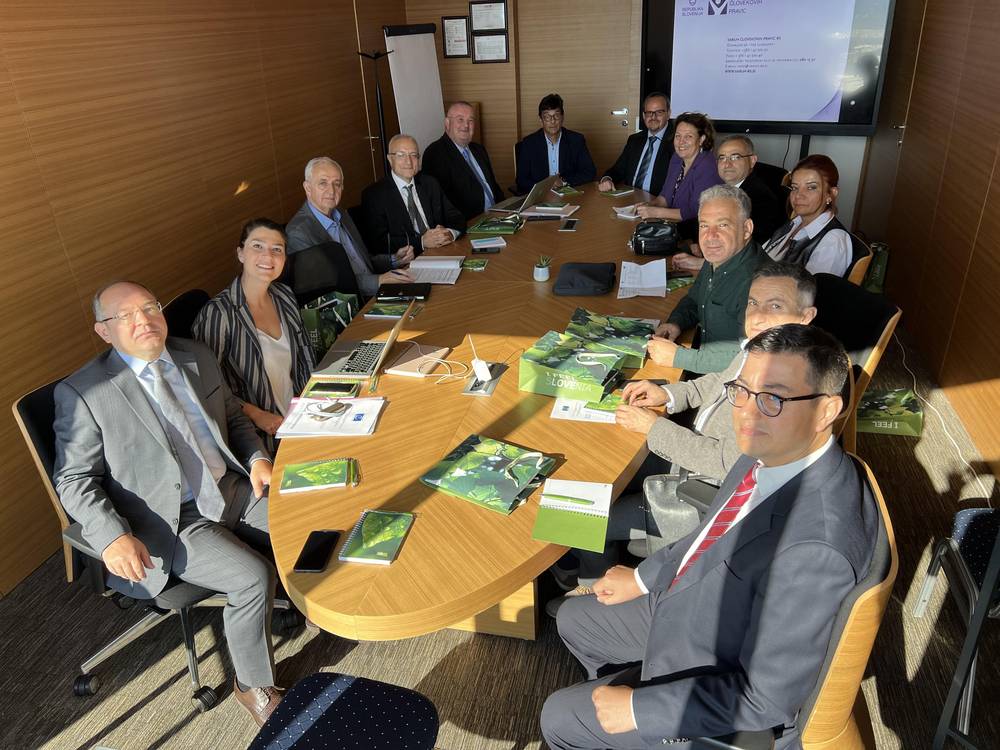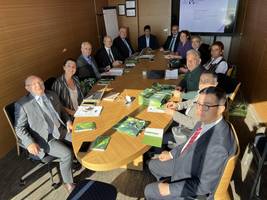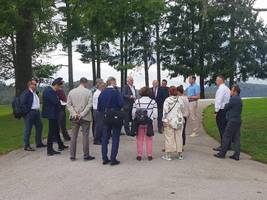From 13 to 15 September 2022, the National Preventive Mechanism in Slovenia, an internal organisational unit of the Ombudsman of the Republic of Slovenia, hosted a study visit by representatives of the General Directorate of Prisons and Penitentiary Institutions of the Turkish Ministry of Justice, the Inspection Council of the Turkish Ministry of Justice, the three Justice Commissions, a representative from Sincan Prison in Ankara and the Council of Europe Programme Office in Ankara. Guests from Turkey learned about best practices, standards, methods and tools for monitoring the functioning of penitentiary institutions and the care of persons deprived of their liberty.
On Tuesday, 13 September, they were welcomed by the Human Rights Ombudsman, Peter Svetina. He stressed that the National Preventive Mechanism (NPM) is an indispensable institution that has been working for more than a decade to prevent torture or other inhuman treatment from occurring in places where people are deprived of their liberty or restricted. "The NPM upholds the essence of all human rights - the dignity of human beings. Without dignity, a person cannot exercise other human rights, and since 2008, NPM has been working to ensure that this does not happen," the Ombudsman stressed. He also emphasised the importance of international cooperation and the transfer of knowledge, experience and, in particular, good practices.
Ivan Šelih, Deputy Ombudsman and Head of the National Preventive Mechanism, presented to the guests from Turkey the origins of the National Preventive Mechanism in Slovenia, its structure, cooperation with civil society and professional associations, its involvement in the international environment, cooperation with the judiciary, and the rich experience of the exercise of powers under the Optional Protocol.
The Ombudsman's advisor Robert Gačnik, Specialist, presented the procedures for visits to penitentiary institutions. He also listed some of the most common findings during the visits. The NPM noted that most of the penitentiary institutions are (still) located in old, dilapidated buildings, where living conditions are poor and there are insufficient facilities for carrying out visits. Many wards face overcrowding and, in the summer months, a lack of air-conditioning. Detainees in particular have few opportunities to spend time in detention actively, and prisoners in general have few opportunities to work.
Katarina Vučko, a representative of the non-governmental sector from the Peace Institute, gave a comprehensive report on the involvement of civil society in monitoring places where people are deprived of their liberty. Robert Friškovec, Deputy Director General of the Administration of the Republic of Slovenia for the Enforcement of Penal Sanctions (URSIKS) and Janja Pahor Mohorič gave a detailed presentation on our prison system, the treatment of prisoners and the cooperation of the prison system with the NPM.
The guests also had the opportunity to test the theoretical information in the field, visiting the prisons in Dob and Koper on Wednesday and Thursday together with members of the NPM.
The project, entitled "Increasing the effectiveness of civilian supervisory committees in line with European standards", is implemented by the Council of Europe and funded by Sweden, Switzerland, the Republic of Turkey, the Human Rights Trust Fund (HRTF) and Canada.


